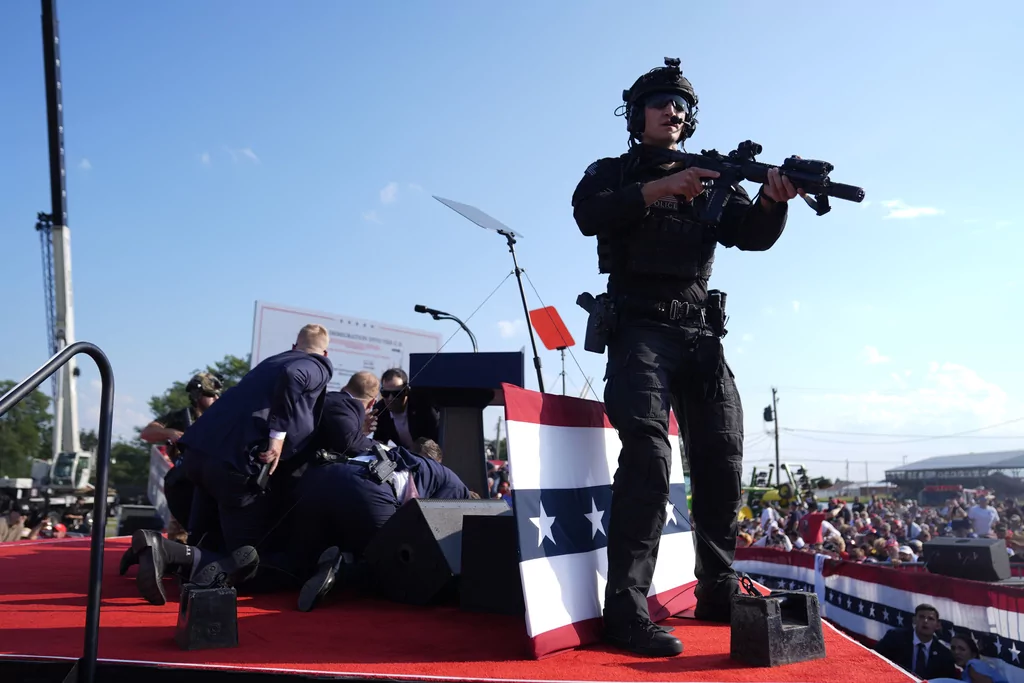
The House task force investigating the July assassination attempt of former President Donald Trump issued an interim report Monday finding the incident was “preventable” and outlined the lack of communication between law enforcement agencies leading to the shots fired.
The report detailed that there were “several pivotal moments” when law enforcement should have engaged with the gunman, Thomas Matthew Crooks, along with the communication failures between the Secret Service and local police departments on scene at the Butler Farm Show Grounds in Pennsylvania on July 13.
“Although the findings in this report are preliminary, the information obtained during the first phase of the Task Force’s investigation clearly shows a lack of planning and coordination between the Secret Service and its law enforcement partners before the rally,” the report found.
The panel found that there was no unified command post set up for discussion between law enforcement agencies, and that, along with an unclear chain of command, led to “critical pieces of information” about the threat not being relayed as quickly as necessary.
“Moments before Crooks fired, a local law enforcement officer radioed that Crooks was on the roof with a gun. There is no evidence, to date, that this information reached the former President’s detail, and he remained on stage,” the report said.

The report alleges there was no joint meeting with the Secret Service, state police, and local police on the day of the rally and that the Secret Service “did not effectively verify responsibilities were understood and being executed.”
A July 11 walkthrough of the rally site with the Secret Service, state police, and local emergency services was described as “disorganized” by witnesses to the panel.
“There was no structure to it. There was no, hey, let’s all talk and figure out what we have to do. It was really just a bunch of people sort of milling around the site,” Butler County Emergency Services Unit Commander Ed Lenz told the task force. “It did not seem organized at all.”
The interim report was complied with various sources, including a hearing last month, thousands of pages of documents from federal, state, and local agencies, and briefings with the Secret Service and FBI, the panel said. The panel said it has “issued three subpoenas to obtain sensitive documents
from local agencies in Pennsylvania.”
The final report by the panel will be due by Dec. 13, with recommendations on how to prevent future shortcomings by law enforcement like what was seen in July and in September with another attempted assassination of Trump at his golf club in Florida. The Trump assassination attempt in Butler, Pennsylvania, resulted in the death of one attendee, Corey Comperatore, and injuries to others, including the former president.
The Secret Service has been under the microscope since the Butler assassination attempt, with various investigations into the incident opened by the House task force, Senate, FBI, and Secret Service, among others.
CLICK HERE TO READ MORE FROM THE WASHINGTON EXAMINER
On Friday, an independent review commissioned by the Department of Homeland Security found that the Secret Service had done “little in the way of self-reflection in terms of identifying areas of missteps, omissions, or opportunities for improvement,” warning that another incident like the Butler shooting could happen “without reform” to the agency.
The Secret Service’s own internal review of the incident released last month deemed it a “mission failure” and “made clear” that a “shift in paradigm in how we conduct our protective operations” is necessary.




